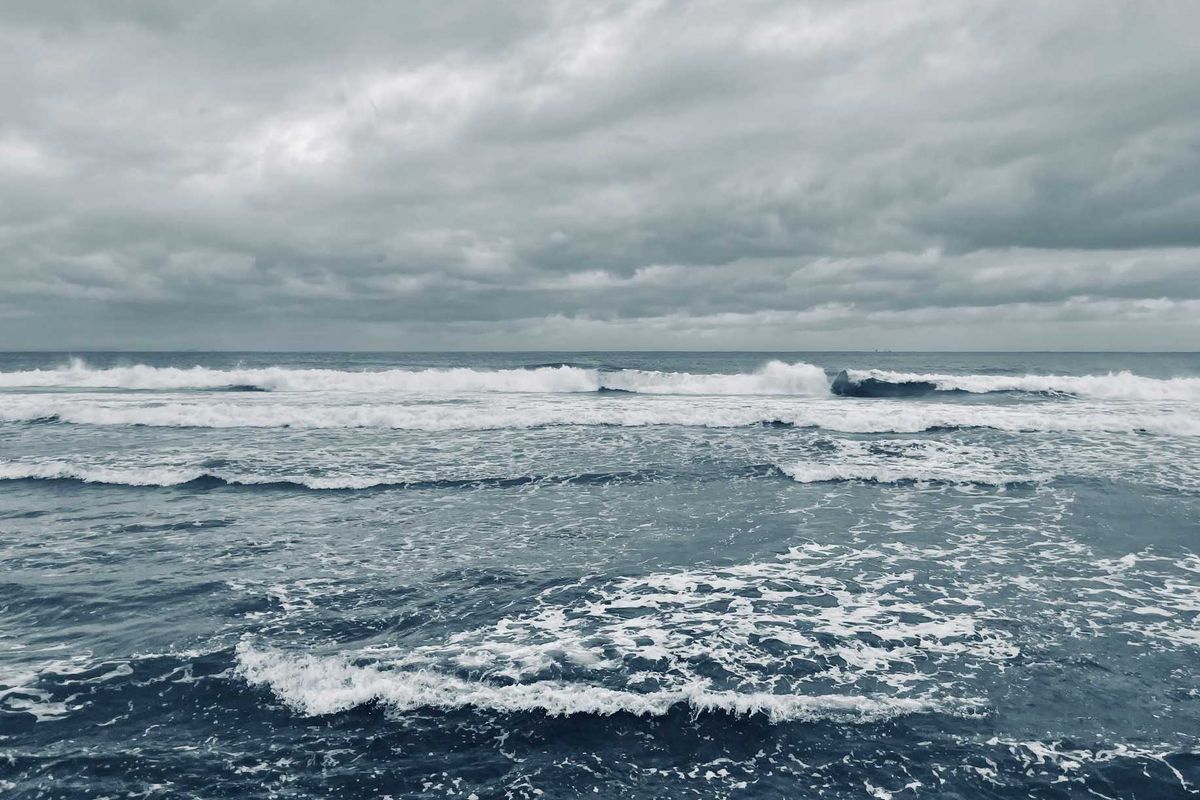Therapists explain the 'Window of Tolerance' concept and give reliable tips on how to widen it
This idea is reframing many people's approach to mental health.
A woman peeks through a window.
When it comes to emotional regulation, it can be hard to understand why some days feel so much easier than others. You might have moments when even the slightest mishap gets your heart racing, while at other times you can't seem to open your laptop to get the day started.
Experts call this the "Window of Tolerance" (WoT), the idea that we function best when we stay within a psychological zone that avoids both overwhelm and under-stimulation.
In an article for A Conscious Re-think, Anna Phillips-Waller explains:
"Think of your window of tolerance as your personal zone of emotional and mental stability. When you're operating within this window, you can handle life's ups and downs without losing your cool or shutting down completely. You're present, responsive, and able to think clearly even when things get challenging."
Here's how it works: our nervous system can exist in one of three zones—hyperarousal, the window of tolerance, and hypoarousal. "When you're within your window of tolerance, you're regulated," Phillips-Waller writes. "You can process information, make decisions, and respond thoughtfully rather than reactively. You feel connected to yourself and others."
According to the National Institute for Clinical Application of Behavioral Medicine (NICABM), "The window of tolerance is a concept originally developed by Dr. Dan Siegel, MD, to describe the optimal zone of 'arousal' for a person to function in everyday life."

"Hyperarousal is also known as the 'fight, flight, or freeze response' and is a heightened state of activation/energy," NICABM explains. "It is when a client's nervous system suddenly kicks into high alert, even when danger might not be present."
"Hypoarousal is also known as the 'shutdown' or 'collapse' response," NICABM says. "Like hyperarousal, it can often be triggered by feeling threatened, recounting traumatic memories, or feeling emotions associated with past trauma. Even a perceived threat can be enough to send a client into shutdown or even dissociation."
The good news is there are many helpful ways to recognize which zone we're in and to learn how to "widen your window" so you can return to the space that works best.
According to an online pamphlet from the Johns Hopkins University Student Health and Wellbeing Counseling Center, you can "intentionally lower or raise your emotional arousal level one step at a time." The pamphlet recommends creating a guide to help you "identify what level you are at through behavioral, emotional, and cognitive cues." It also advises keeping "track of the skills and activities that help you incrementally shift toward the WoT."
The pamphlet suggests thinking of your functional tolerance level as a scale from 0–10, with 0–3 representing the hypoarousal zone, 4–6 the window of tolerance, and 7–10 the hyperarousal zone. You can start to notice what your body is doing and, in turn, counteract those feelings and thoughts with action. For example, if you're feeling "overwhelmed with panic or racing thoughts," you can recognize it and counter it with "grounding, calm place imagery, deep breathing, yoga, walking, music."
If you find yourself on the other end of the scale, in the hypoarousal zone, you might feel "numb, out of it, disconnected, apathetic, empty." The pamphlet recommends "exercise, connecting to positive sensations, weighted blanket, dancing, gently squeezing yourself" as ways to bump up your number, with the goal of returning to your window of tolerance.
California-based therapist and coach John Sovec shared with Upworthy:
"How we relate to our emotional experiences is part of the understanding of how to increase our tolerance of them. Rather than thinking of drowning in emotions, I encourage clients to imagine their emotional journey as the ebb and flow of the ocean. Not the ocean that crashes into the shore, all froth and foam, but instead the bigger ocean where the waves rise and fall without resistance and thus keep rolling along rather than crash and explode. This visualization can change the dynamic of how we view emotions and their influence on our daily experience."

Sovec offered this suggestion:
"A simple technique to assist a person in widening their window of tolerance is to encourage them to move their body when the emotions start to build up. This could involve easy movement such as shaking out the hands, doing some light stretching or yoga movement, and even the playful approach of putting on some music and having a dance party. Moving the body softens the nervous system response and allows one to be more present with their emotions rather than drown in them."
Licensed psychotherapist Alison McKleroy, author of Essential Strategies for Social Anxiety and The Self-Compassion Journal, shared this advice with Upworthy:
"A helpful practice to widen the window is orienting to safety. Take a moment to look around and notice something pleasant in your environment. This could be the color of the sky out your window, the smell of your coffee in your hand, or the way light moves across the room. Let your eyes rest there for a few breaths. This simple act sends a signal to your nervous system that there is no immediate threat, which helps bring you back into your window of tolerance."

